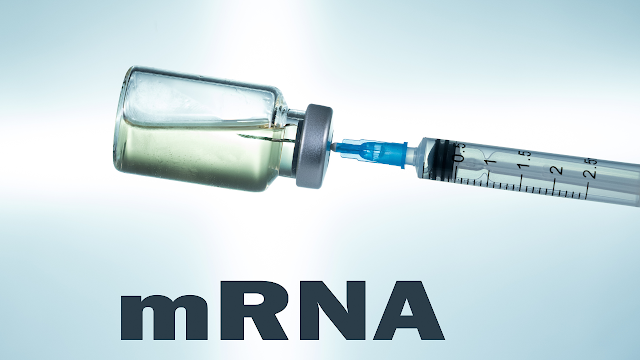The landscape of vaccine development has experienced a seismic shift with the emergence of messenger RNA (mRNA) vaccines. This innovative technology, once relegated to the realms of scientific research, has propelled itself onto the global stage in the wake of the COVID-19 pandemic, and its potential to revolutionize vaccinology across various diseases is immense.
Mechanism:
Unlike traditional vaccines that utilize weakened or inactive viruses, mRNA vaccines work by introducing a synthetic molecule of messenger RNA into the body. This molecule carries genetic instructions for producing a specific protein, which acts as the antigen. Once inside the cell, the mRNA instructs the cellular machinery to manufacture the antigen, essentially mimicking a viral infection without the actual risk of disease.
This process triggers the body's immune system to recognize and attack the foreign protein, developing a robust immune response. By targeting a specific protein, mRNA vaccines an elicit a targeted immune response, minimizing the risk of off-target effects and adverse reactions.
The COVID-19 Catalyst:
The emergence of the COVID-19 pandemic served as the catalyst for the rapid development and deployment of mRNA vaccines. The urgent need for effective vaccines to curb the spread of the virus saw researchers and pharmaceutical companies collaborate at an unprecedented pace. This collaboration culminated in the development of highly effective mRNA vaccines, demonstrating the technology's potential for rapid response to emerging infectious diseases.
Beyond COVID-19: A Broader Scope:
While the initial success of mRNA vaccines stemmed from their application in tackling COVID-19, the potential of this technology extends far beyond the pandemic. Researchers are actively exploring the use of mRNA vaccines for a diverse range of diseases, including:
- Cancer: By targeting specific proteins expressed by cancer cells, mRNA vaccines hold promise for personalized cancer immunotherapy. This approach could offer a more effective and less toxic alternative to traditional cancer treatments.
- Infectious diseases: Beyond COVID-19, researchers are developing mRNA vaccines for other infectious diseases such as influenza, Zika virus, and HIV. These vaccines could offer broader protection and potentially even eradicate certain diseases.
- Non-infectious diseases: The potential of mRNA vaccines extends beyond
- mRNA vaccines offer several distinct advantages over traditional vaccin infectious diseases. Researchers are exploring their application in treating chronic diseases such as heart disease, Alzheimer's disease, and autoimmune disorders.
Revolutionizing Vaccinology:
- Rapid development: The ability to quickly synthesize and modify mRNA molecules allows for faster vaccine development compared to traditional methods.
- Targeted response: mRNA vaccines can be designed to target specific proteins, resulting in a more precise and efficient immune response.
- Reduced side effects: By avoiding the use of live or inactive viruses, mRNA vaccines offer a safer profile with fewer side effects.
- Scalability: mRNA vaccines can be easily manufactured at large scale, making them ideal for mass vaccination campaigns.
These advantages make mRNA vaccines a game-changer in the field of vaccinology. They have the potential to revolutionize vaccine development, leading to faster, safer, and more effective vaccines for a wider range of diseases.
Challenges and Considerations:
While the potential of mRNA vaccines is undeniable, certain challenges and considerations remain:
- Long-term safety data: Although initial data suggests that mRNA vaccines are safe, long-term safety data is still accumulating. Continual monitoring and research are crucial.
- Cost and accessibility: Ensuring equitable access to mRNA vaccines, particularly for developing countries, requires addressing cost considerations and developing sustainable production and distribution strategies.
- Public education and acceptance: Continued public education and communication are essential to address vaccine hesitancy and encourage widespread adoption of mRNA vaccines.
Looking Ahead: A Promising Future:
Despite the challenges, the future of mRNA vaccines is bright. Their revolutionary potential for disease prevention and treatment is poised to significantly impact global health. As research continues and the technology evolves, we can expect to see even more remarkable advancements in this field, paving the way for a healthier and more disease-free future.
The development of mRNA vaccines marks a turning point in the history of vaccinology. This revolutionary technology has the potential to transform the way we prevent and treat diseases, offering hope for a healthier and brighter future for all. By acknowledging the challenges and actively working towards solutions, we can ensure that the full potential of this technology is realized, leading to a world where everyone has access to effective and life-saving vaccines.






.png)
0 Comments